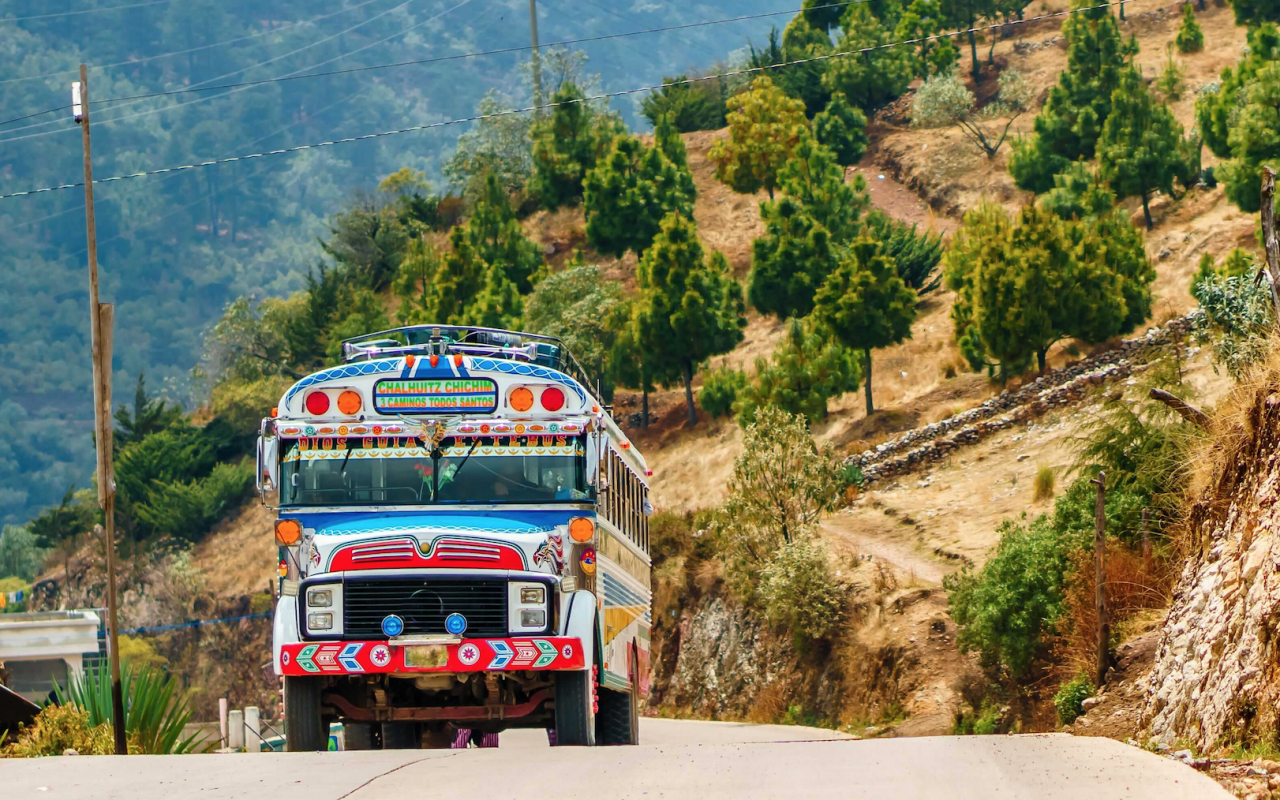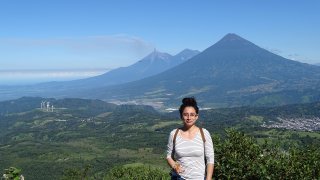updated on august 4th, 2025
Current Status: Normal Operations Resumed
As of August , 2025, Guatemala is experiencing peaceful and stable conditions with no active protests or road blockages affecting travel operations. The country has returned to normal following the resolution of earlier demonstrations this year.
Latest Situation Summary
The situation in the country has been back to normal for a while now following the end of protests on March 20, 2025, when President Bernardo Arévalo announced the repeal of the mandatory car insurance law. Since then, Guatemala has maintained stable conditions with:
- All major highways and tourist routes open
- Normal airport operations at La Aurora International Airport
- Regular transportation services to popular destinations like Antigua, Lake Atitlán, and Tikal
- Hotels and tour operators functioning normally
What Happened Earlier in 2025?
The most recent protests were brief and focused on a specific policy issue. Between February and March 2025, citizens organized peaceful demonstrations regarding a new mandatory car insurance law. These protests were resolved quickly when the government responded to public concerns and repealed the legislation on March 20, 2025
Key Points About These Protests:
- They were entirely peaceful and non-violent
- Focused on a single policy issue (car insurance requirements)
- Resolved within weeks through government action
- Did not target tourists or tourism infrastructure
Current Travel Conditions
✅ Airport transfers: Operating normally with no delays
✅ Tourist shuttles: Regular schedules to Antigua, Lake Atitlán, and Tikal
✅ Hotels: Fully operational with normal service levels
✅ Guided tours: Running on regular schedules
✅ Tourist attractions: All major sites accessible
Guatemala in August 2025 presents excellent conditions for travelers. The country has successfully navigated recent challenges and returned to normal operations. With robust tourist support systems in place and a government committed to maintaining stability, visitors can confidently plan their Guatemala adventures.
This assessment is based on current conditions as of August 4, 2025. We continue monitoring the situation and will provide updates if conditions change.
22/03/2025 – Update on Car Insurance Protests
End of protests following repeal of the law
End of protests 20 march 2025 following the announcement by the president that the law on mandatory car insurance was repelled. The situation in the country is back to normal.
On March 20, 2025, Guatemalan President Bernardo Arévalo announced the repeal of the mandatory civil liability insurance law for all vehicles, including motorcycles. The regulation was set to come into effect on May 1, but triggered nationwide protests and road blockades over the past 48 hours.
Source ( in spanish): Tras los bloqueos a las carreteras, el presidente de Guatemala derogó el seguro obligatorio para todos los vehículos
Protests in Guatemala Over New Car Insurance Law in 2025
March 2025 — Guatemala is facing widespread public protests in response to a newly enforced mandatory car insurance law. The unrest has led to road blockades and traffic disruptions.
Protests have erupted across Guatemala in response to a new traffic law that requires all drivers to purchase car insurance. The law officially came into effect in January 2025, with enforcement beginning more strictly in February and March. Protesters argue that the cost of insurance is too high for the average Guatemalan and that the law was passed without sufficient public consultation.
Timeline of Events
- January 4, 2025: The Guatemalan government implements a new law requiring all drivers to have compulsory vehicle insurance.
- February 10, 2025: Citizens, led by transport unions and civil society groups, begin organized protests, especially in urban centers.
- February 28, 2025: Protests intensify after police begin ticketing and impounding vehicles without insurance.
- March 2025 (current): Demonstrations continue nationwide, with key highways and tourist routes intermittently blocked.
📍 Key Locations of Protests:
- Guatemala City: Main roads and highways have seen blockades and demonstrations.
- Quetzaltenango, Cobán, and Chimaltenango have also reported significant protest activities.
- Truckers, motorcyclists, and taxi drivers have been especially active in the demonstrations.
📢 Demands from Protesters:
- Immediate suspension or repeal of the mandatory insurance law.
- Government subsidies or alternatives for low-income vehicle owners.
- A public debate and reform of the legislative process that led to the law’s approval.
🏛️ Government Response:
- The Guatemalan government, under President Bernardo Arévalo, has stated the law is aimed at improving road safety and providing financial coverage in case of accidents.
- Officials have proposed modifications to make the law more flexible, including:
- Phased implementation
- Reduced-cost insurance plans for low-income citizens
- However, no suspension of the law has been announced as of now, which continues to fuel unrest.
Impact on Tourism
While the protests are non-violent, the situation has impacted travel in several ways:
✈️ Transport:
- Airport transfers in Guatemala City are delayed during peak protest hours (9 AM–1 PM).
- Some tour buses and shuttles to Antigua, Lake Atitlán, and Tikal have had to reschedule or reroute.
🏨 Hotels:
- Most hotels remain open and operational.
- However, check-in delays have been reported due to blocked roads or staff absenteeism.
🧭 Tours & Activities:
- Guided tours in Antigua and Lake Atitlán are operating on flexible schedules.
- Travelers should confirm with local operators the evening before planned excursions.
🛑 Safety Note : It is still safe to travel to Guatemala
The U.S. Department of State and UK Foreign Office have not issued a “Do Not Travel” advisory, but urge travelers to:
- Avoid protest areas,
- Stay informed via official embassy alerts, and
- Use authorized transportation.
✅ What Travelers Can Do
- Confirm all travel arrangements with local agencies.
- Follow real-time news and government advisories (links below).
- Stay in touch with your country’s embassy in Guatemala.
- Be flexible: Allow extra time for travel and transfers.
October 30th 2023 update
Situation in 2023 :after 3 weeks of protests, all block roads and streets has been removed.
It is possible to travel normally in Guatemala.
In a nutshell:
- October 14th : we are able to resume travel operations (with adjustments).
- October 20th : indigenous authorities announce the end of roadblocks.
- Octobrer 24th : 5 roadbloads remain in the department of Sololá. Alternative routes make it possible to bypass them and to access Lake Atitlan.
- October 27th : the last remaining roadblocks are lifted.
- Travel to Guatemala to Guatemala is now possible. We are monitoring the situation and its evolution on a daily basis.
The political situation:
After a campaign focused on the fight against corruption, social-democrat candidate Bernardo Arévalo won the August 20, 2023 presidential election with almost 60% of the vote against conservative candidate Sandra Torres.
The election came as a surprise, first and foremost to Guatemala’s politicians and ruling elites. Bernard Arévalo was only credited with 3% of voting intentions by the polls, in an election marked by the ousting of 3 opposition candidates who could have contested the second round.
Since then, the judiciary has persisted in preventing the president-elect from taking office on January 14, 2024. At the beginning of October, this situation and the repeated actions of the Public Prosecutor’s Office against the president-elect provoked a popular mobilization across the country against the authorities.
Protests in Guatemala:
Demonstrations in Guatemala are traditionally characterized by road blockades. These blockades are peaceful and pose no safety risk to travelers.
Our agency is used to deal with this type of situation: by keeping abreast of the country’s blockades on a daily basis, proposing alternative routes and modifying transfer schedules to avoid blockades. In the event of blockages, we are in constant contact with our travelers on the ground, as well as our drivers and guides.








